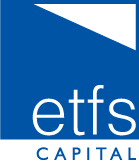With the Federal Reserve implementing its steepest funds rate hike since 2000, investors will be asking how long high inflation and monetary tightening will last and whether less accommodative policy will put an end to the decade-long goldilocks period for growth stocks.
Fed chair Jerome Powell said the central bank will work “expeditiously” to move inflation back to the 2% target but appeared to rule out rates hikes more dramatic than Wednesday’s 0.5% increase.
On Thursday, the Bank of England raised rates by 25 basis points to 1%, its fourth hike since December. However, with the energy price cap set to rise again in Autumn, UK CPI readings could yet reach as high as 10%, with the bank’s governor Andrew Bailey saying the policymaker is “walking a very tight line” between tackling inflation and avoiding recession.
The scene this sets for investing is an unsettling one. The consensus view is US inflation could settle back down to around 3% in coming years and 4% in the UK – but the extent and stickiness of more hawkish monetary policy in the meantime is hard to predict.
More moderate investors have already begun searching for hiding places such as floating rate bond ETFs, more defensive equity exposures such as utilities, telecoms and consumer staples, and ‘illiquids’ such as property and infrastructure – many of which tend towards lower volatility and greater income potential.
Not only are some banks forecasting a recession in the latter stages of 2023 but rising rates are making fixed income product yields look far more attractive to investors. Add to that the downward pressure rising rates have on the present value of expected cash flows – a particularly important metric for companies operating in speculative areas such as tech – and the ideal conditions of the post-Global Financial Crisis (GFC) era appear to be vanishing.
While there is no guarantee of a prolonged swing away from growth, some investors would like to see ETF issuers in Europe be more responsive to current market conditions. The current focus remains on launching products addressing ESG and crypto. Meanwhile, products such as the US-listed Pacer US Cash Cows 100 ETF (COWZ) – capturing companies more likely to perform dividend payouts and share buybacks – are short on European equivalents.
WisdomTree leadership tussle continues
In only the latest stage of the WisdomTree versus activist investor scuffle, ETFS Capital and Lion Point Capital have issued another open letter calling for the resignation of CEO Jonathan Steinberg and accused him of having “thwarted” settlement discussions between the parties.
Talks were being conducted to end the ‘poison pill’ the asset manager issued on 14 March and to make changes to the firm’s board. The letter said “recent actions taken by WisdomTree over the last few days” showed the activist investors that WisdomTree has “no intention of honouring the spirit of any such agreement and is merely seeking to silence its largest stakeholders”.
It went on to blame Steinberg personally for “multiple years of value destruction and subpar returns” as well as WisdomTree’s “underperformance and staggering loss in market share”.
Barclays ETN woes mount
UK banking giant Barclays continues to face difficulties with its exchange-traded notes (ETN) business and announced earlier in the week it had halted trading of $1.6bn US-listed iPath range of 30 products as it sought to resolve a filing issue with the Securities and Exchange Commission (SEC).
The changes in paperwork are known as a Form 20-F and a new shelf registration statement. The firm said it would make an announcement once the documentation has been filed with the US regulator.
This is the second time Barclays has had to suspend some of its ETNs within the past two months after it suspended new creations the iPath Pure Beta Crude Oil ETN (OIL) and the iPath Series B S&P 500 VIX Short-Term Futures ETN (VXX) because it exceeded its maximum issuance by roughly $15.2bn over a 12-month period. The bank said the £523m mistake showed “material weakness” in its internal controls.
ETF Wrap is a weekly digest of the top stories on ETF Stream






